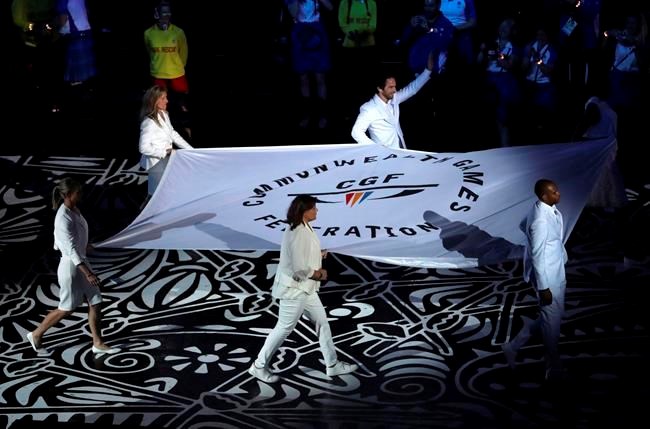Hamilton has a choice between poetry and a slam dunk.
Canada's candidate city for the 2030 Commonwealth Games has been asked to consider a bid for 2026 instead because of a global dearth of cities interested in the latter.
Hamilton hosted the first edition of the Commonwealth Games — then called the British Empire Games — in 1930.
Holding the Games a century later would have symbolic symmetry for the southern Ontario city of 535,000 people.
A group of community leaders under the banner of Hamilton 100 celebrated when informed last week by both the U.K.-based Commonwealth Games Federation and Commonwealth Sports Canada that Hamilton was Canada's candidate for 2030.
And then . . .
"They had a proposition for us," Hamilton 100 member Lou Frapporti told The Canadian Press. "They were asking us to consider whether we would instead pivot towards 2026.
"We weren't entirely surprised by the request because we were aware for some time they were having some challenges globally in securing a suitable host city for 2026."
The quadrennial Commonwealth Games features 6,500 elite athletes and coaches from 71 countries competing in summer sport.
Gold Coast, Australia, was the most recent host in 2018. Birmingham, England is next in 2022.
Victoria was the last Canadian host city in 1994.
"We're trying hard to bring the Games back to Canada," Commonwealth Sport Canada chief executive officer Brian MacPherson said. "It's been too long since we've hosted."
A 2030 host won't be unveiled until 2023. The Commonwealth Games Federation is under pressure now to get a host city in place for 2026.
Hamilton 100 is deep into the process of a 2030 bid with support in principle from the city and provincial and federal governments.
"There was an enormous amount of sentimentality, but also a great deal of focus and work committed towards 2030," Frapporti said.
The projected cost to Hamilton is $1.4 billion, with the city's estimated contribution between $250 million and $375 million.
The construction of a pool at McMaster University, three multi-sport centres, a track and field venue and 500 to 700 affordable housing units are features of the proposed hosting plan.
"We are not withdrawing our 2030 bid and we're not being asked to do that," Frapporti said.
"You don't have to choose in the sense that unless there's an acceptable deal for everyone in place for 2026, 2030 remains our focus."
Pivoting to 2026 has some compelling elements for Hamilton, however. The city unsuccessfully pursued the 1994, 2010 and 2014 Commonwealth Games.
2014 stung because Hamilton lost to Halifax to be Canada's candidate city, only for the Nova Scotia capital to withdraw from the international race.
Hamilton would be a clear favourite internationally for 2026. More rival bids, including an Australian entry, are predicted for 2030.
"It's entirely possible Hamilton may lose it again," Frapporti said.
Because the CGF is anxious to have a 2026 host, it is willing to make concessions that could make the price tag cheaper for Hamilton.
"We expect the budget for 2026, were we to go down that road, would be less and maybe materially less than the budget we've put forward for 2030, but we don't know yet," Frapporti said.
Multi-sport Games planning does not turn on a dime, however.
"It's going to be impacted by having a better understanding of whether we are going to be in a position to physically put the games on, on an accelerated time scale," Frapporti said.
The dilemma comes during the current COVID-19 pandemic wreaking societal and economic havoc.
"This a huge wild card," Frapporti said. "Where that gets really complicated is decisions need to be made on a relatively short timeline.
"Our relationships are very deep with the mayor, city council and staff. They're focused on the public health issues. They're not really wanting to have to talk about an athletic event in 2026 right now.
"That's absolutely understandable. Their focus is on the right thing. The optics of us screaming about an athletic event in the face all of this misery is problematic.
"We're so appreciative of what the city and staff are doing to help the community get through. We understand that has to be dealt with first."
This report by The Canadian Press was first published April 9, 2020
Donna Spencer, The Canadian Press


